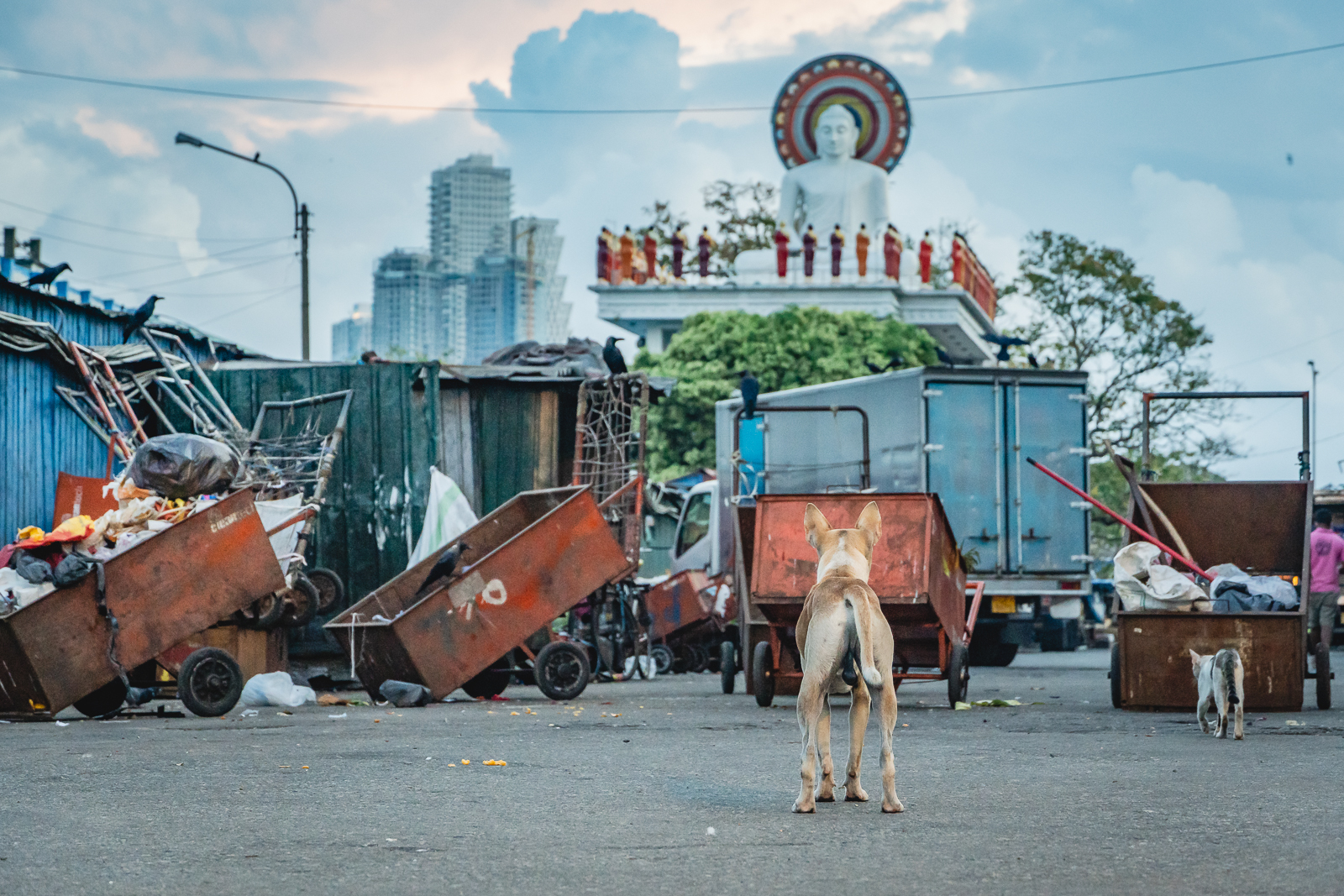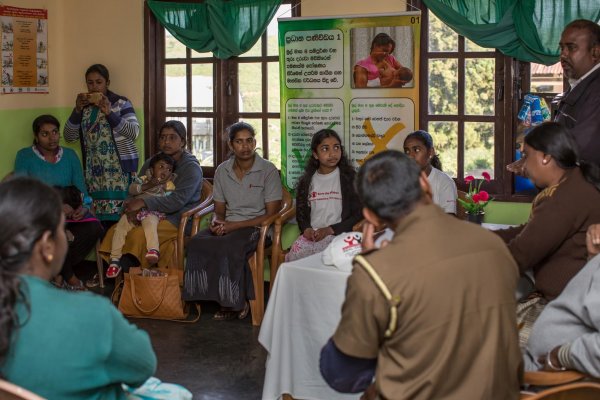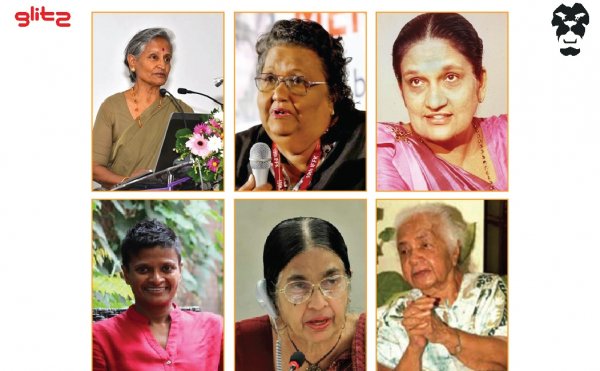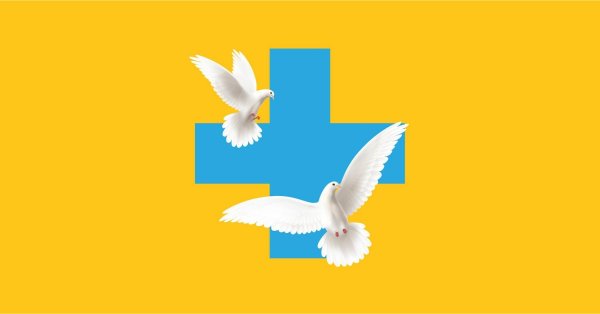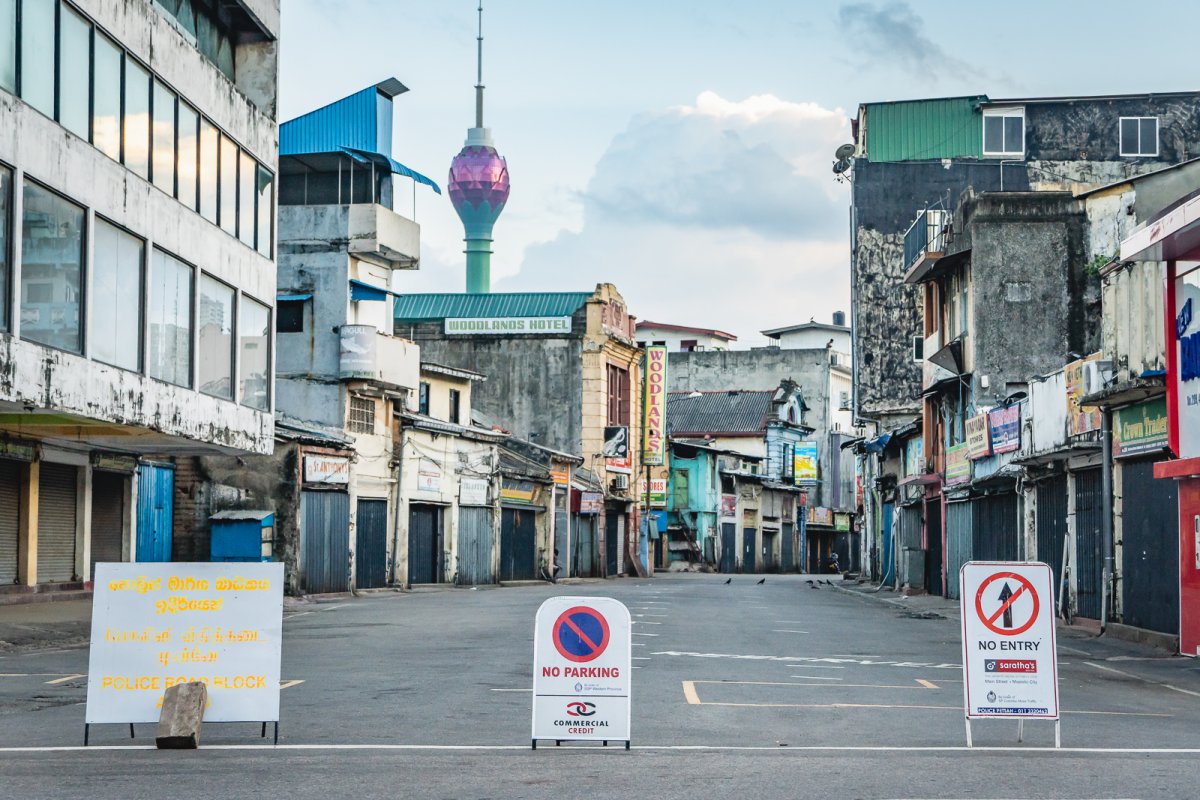
Pettah has now been under lockdown for over a month since the second wave of COVID-19 reared its head in October. Even though the quarantine curfew was partially lifted in the Western Province on Monday (30 November), many businesses in Pettah remain shut indefinitely.
The economic centre of not just Colombo but almost all of Sri Lanka, an isolated Pettah means an almost economically paraplegic nation; a number of groups — labourers, business owners, cleaners and customers — remain economically stranded. Those who kept the wheel that was Pettah running — be it a small cog or a large gear — are left stranded in limbo, their daily contributions suspended.
The effects of a Pettah under lockdown are directly felt by the daily wage earners who have built their lives around the hustle and bustle of the town. This is what some of them had to say.
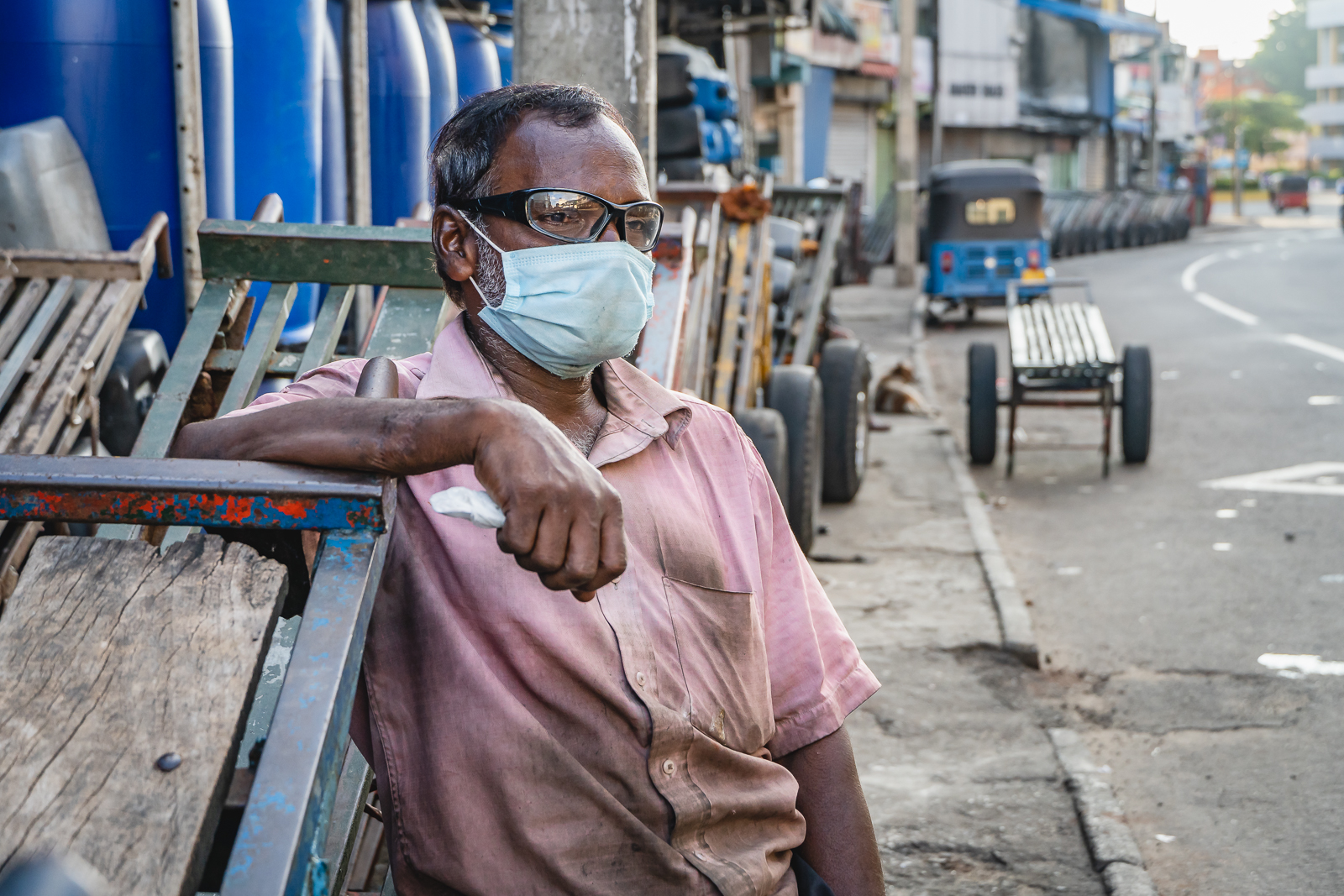
Selvam is no stranger to Pettah. Known to many as ‘Karaththe Selvam’ [roughly translated to ‘Selvam of the carts’], he has been living in Pettah since his childhood. Beginning as a nattami or labourer, Selvam managed to collect enough money over the years, to become the owner of multiple carts, earning him his title. He now rents the carts to other labourers who want to use them.
These two-wheeled long carts are generally pulled around by nattamis, transporting multiple goods in one go, instead of having to carry them one by one. With Pettah under lockdown, however, these carts are left unattended.
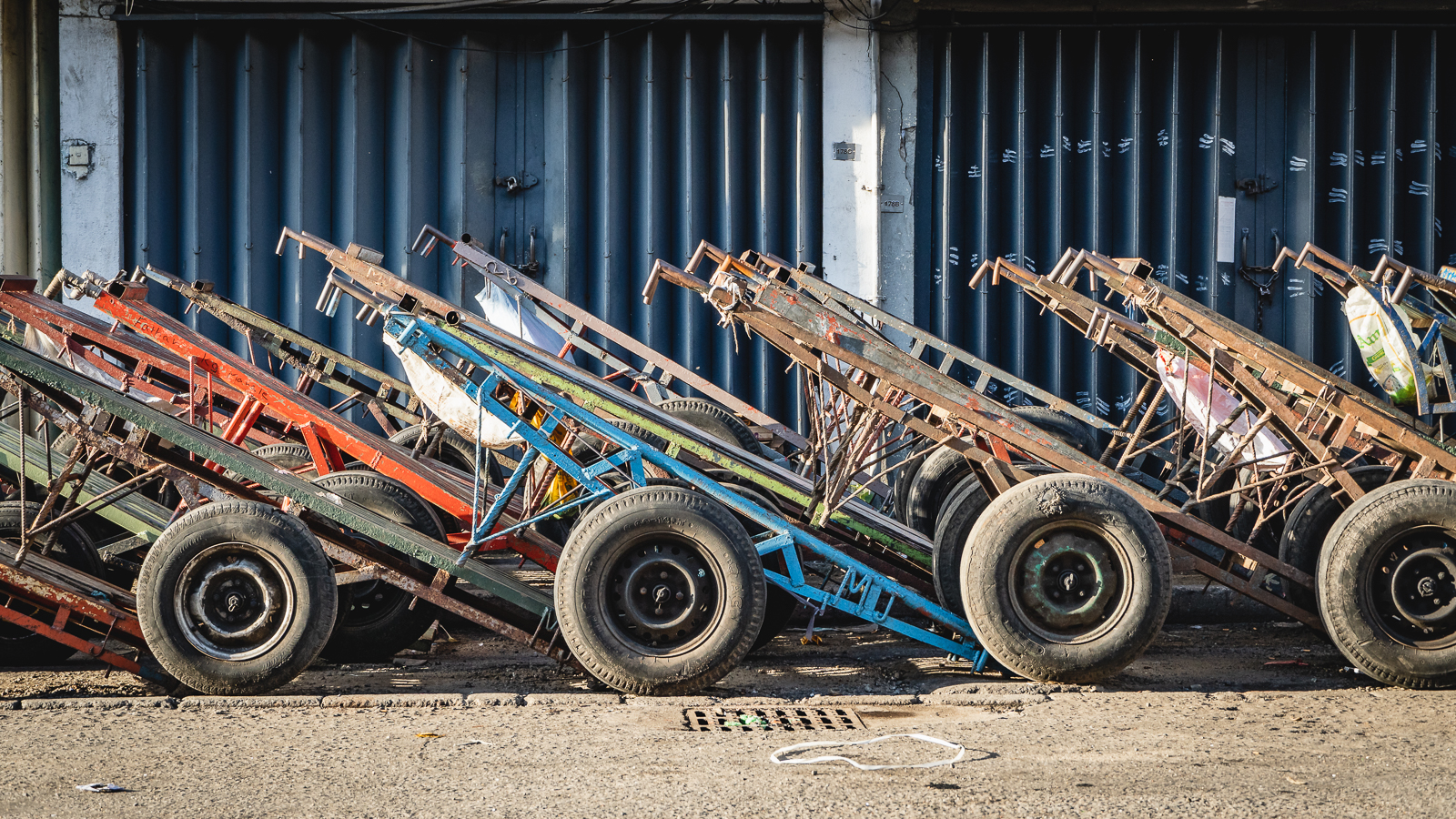
“Though I’m worried that my business has taken a hit, I want this pandemic to be over and everyone to be safe. With Pettah being a commercial hub, the authorities would not want the disease to spread to other areas of the country. I keep thinking about nattamis who are living in isolated areas like Modara and Mattakkuliya. They are daily wage earners, so they might be struggling to earn something for their daily living,” he said.
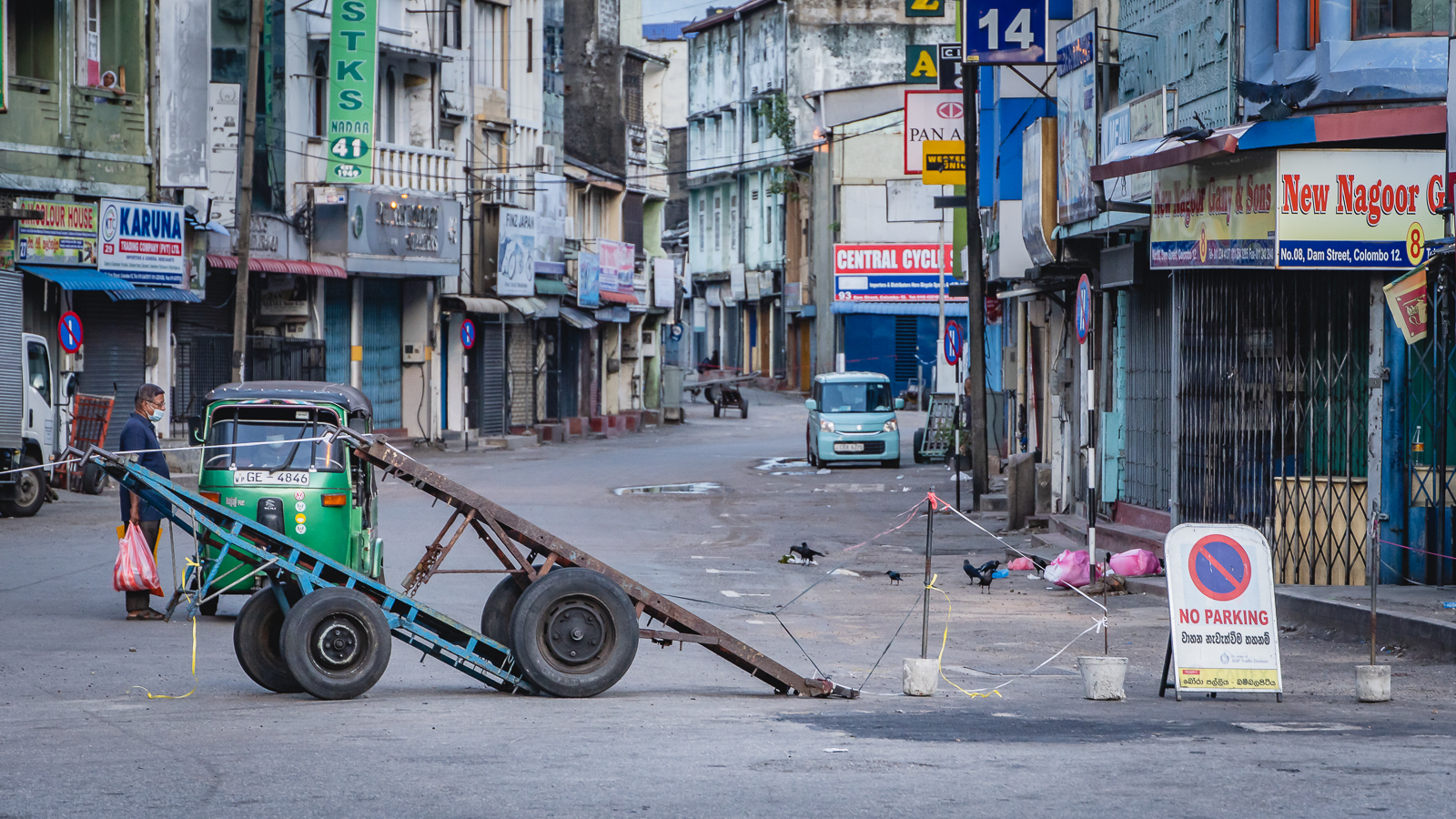
Despite Pettah being virtually empty, we bumped into one person idling on the side of the road.
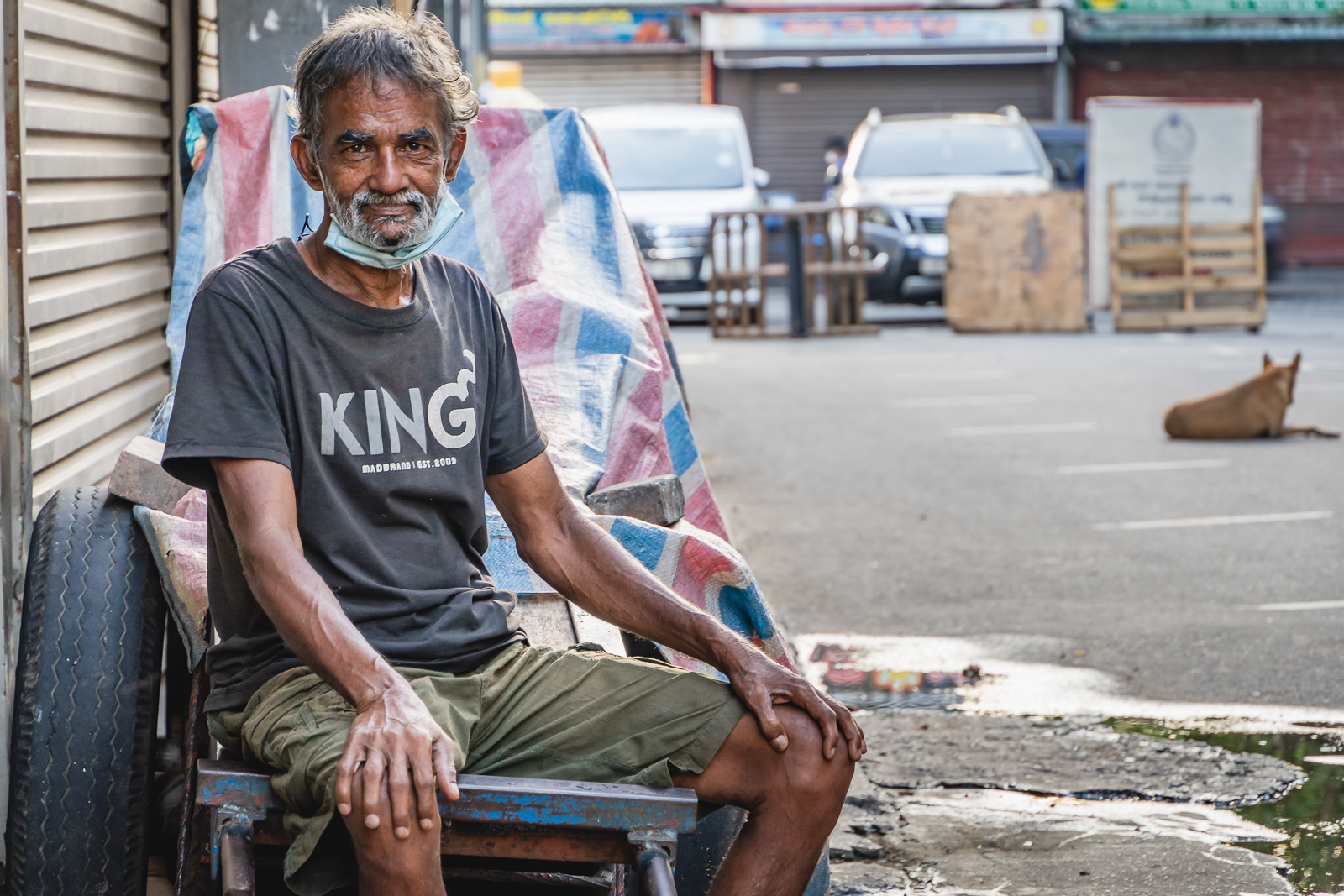
“I don’t have anywhere to go, so this is where I sleep”, said Sunil, pointing at a cart.
Previously a resident of Wellawatte, Sunil said, “I had a fight with my sister, so I don’t go there anymore. I earn a living here and spend the night sleeping on my cart. Since all the shops are closed, we don’t get anything these days. Sometimes a shop owner would come along and give us some money or food. That’s how we are surviving.”
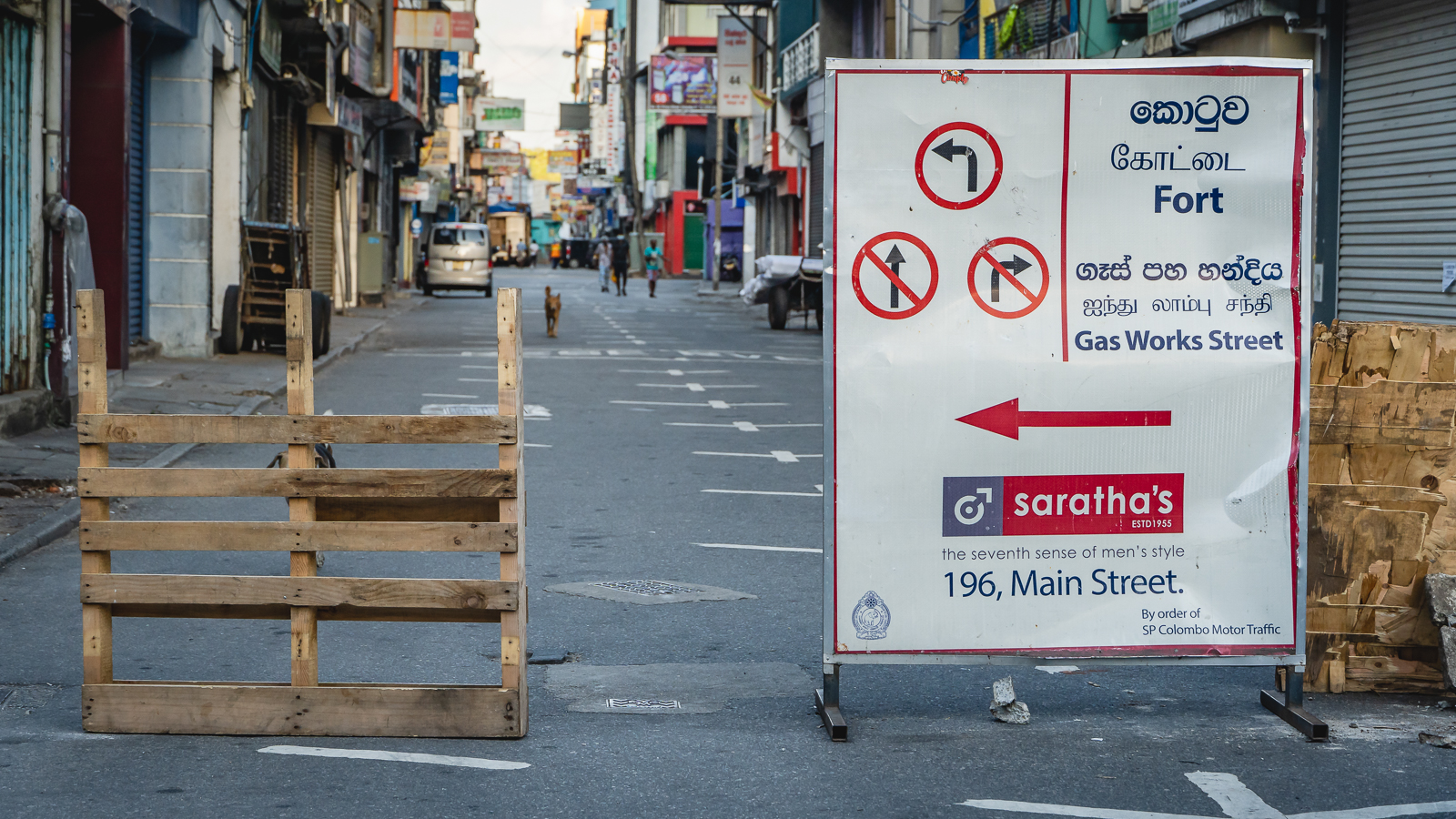
Empty streets are an unusual sight to behold in Pettah, after passing the chaos and tumult of other parts of the city to get here. The complete emptiness is only broken when a lone woman leaves her home in search of what we can only presume is groceries, or to see to some other task that cannot be avoided.
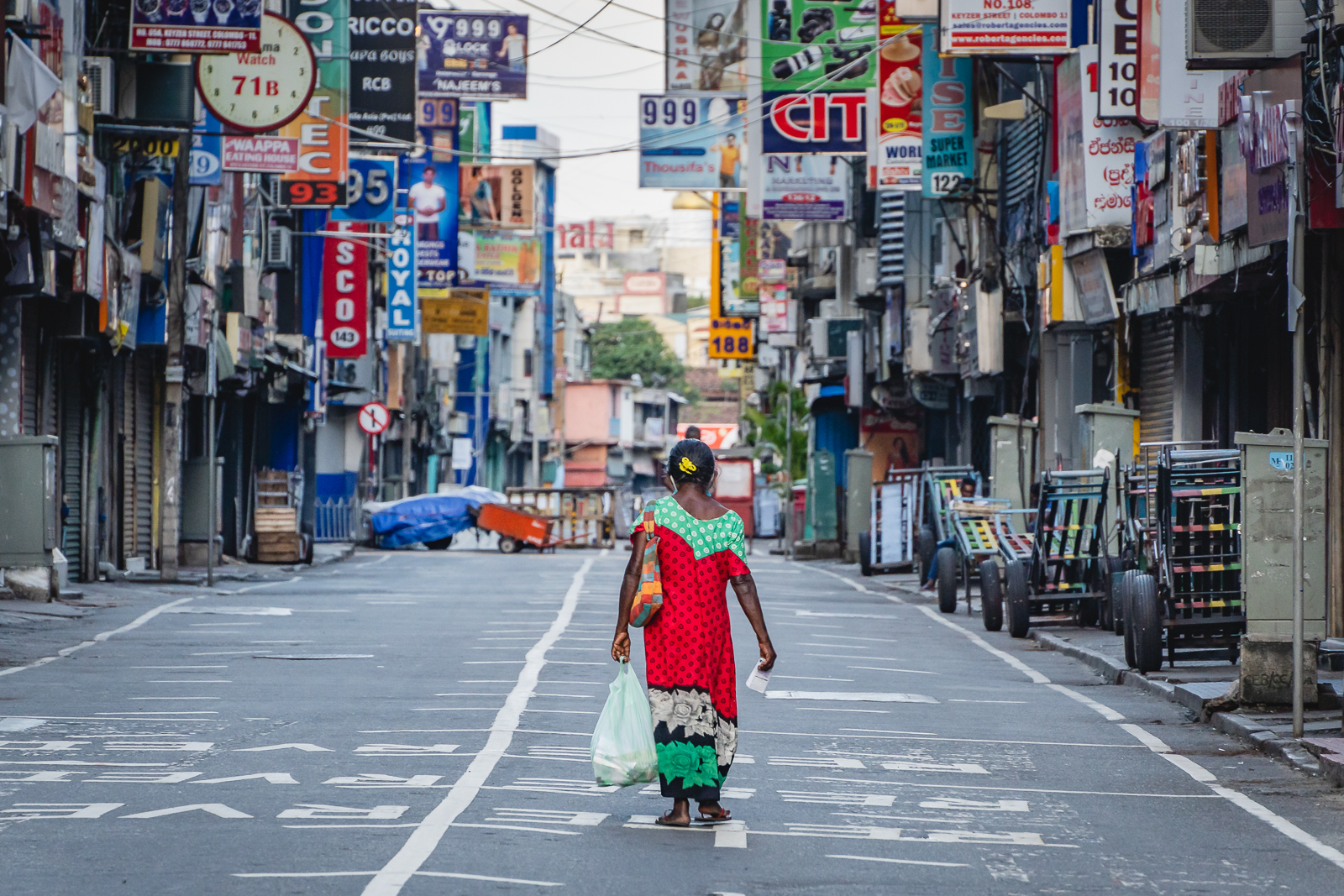
These times of trouble can sometimes bring out the best of people. Meet Nandawathi (53): a street cleaner and carer of street dogs.
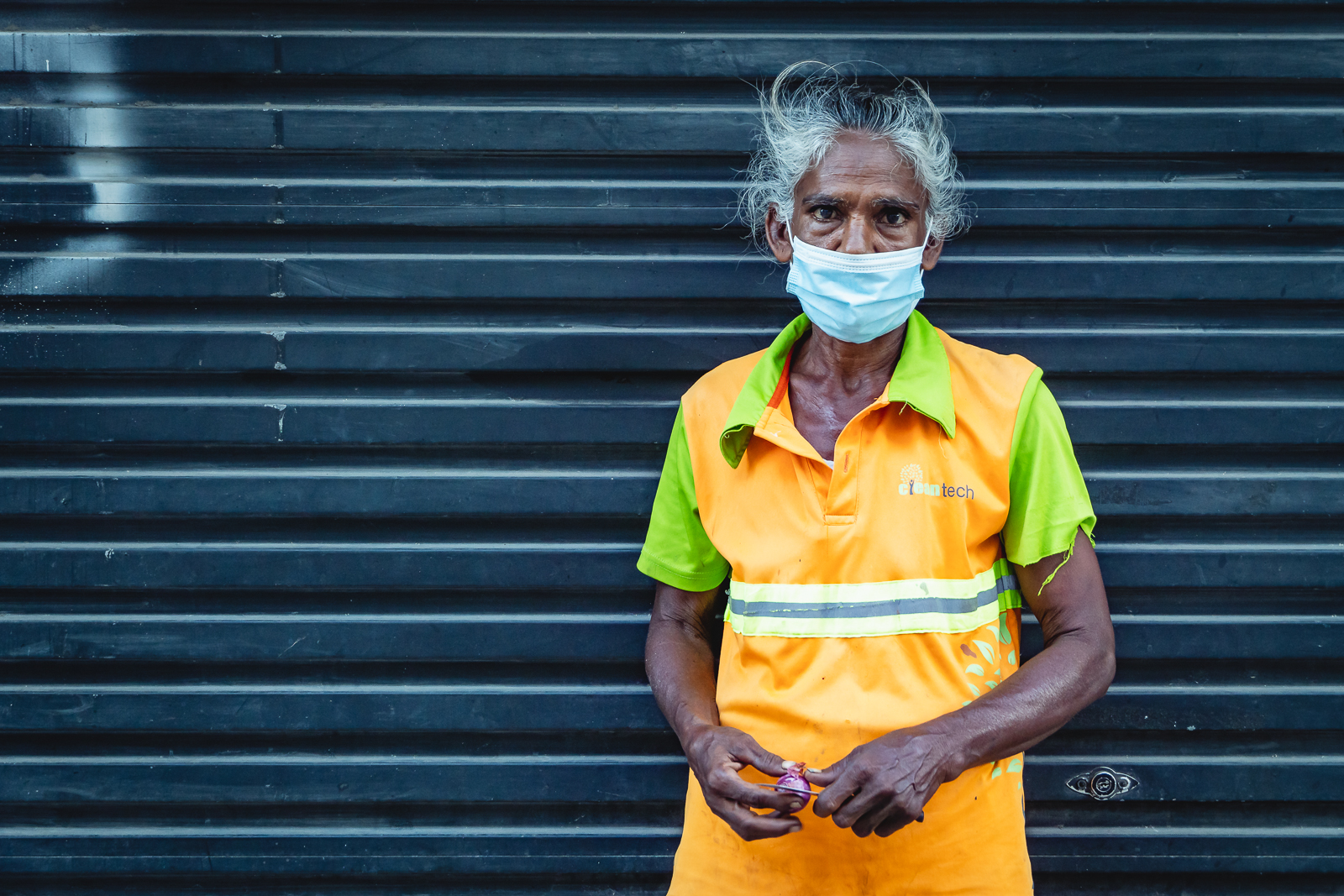
“Regardless of the situation, I have to work daily since I work for a cleaning service company. I don’t get a daily wage, but I get paid at the end of the month. Thankfully I have a job that is not affected by the lockdown,” she said.
We spotted Nandawathi carrying a single bag of rice. She emptied the bag into a steel pot, washed it and started cooking it on an open fire. All of this took place on the corner of an empty street — empty, that is, except for Nandawathi, some dogs and a photographer with an inquisitive look on his brow. We asked her whether the rice was for her dinner. “The food is not for me, but for these guys,” she said, pointing at the four dogs who were on the side of the road.
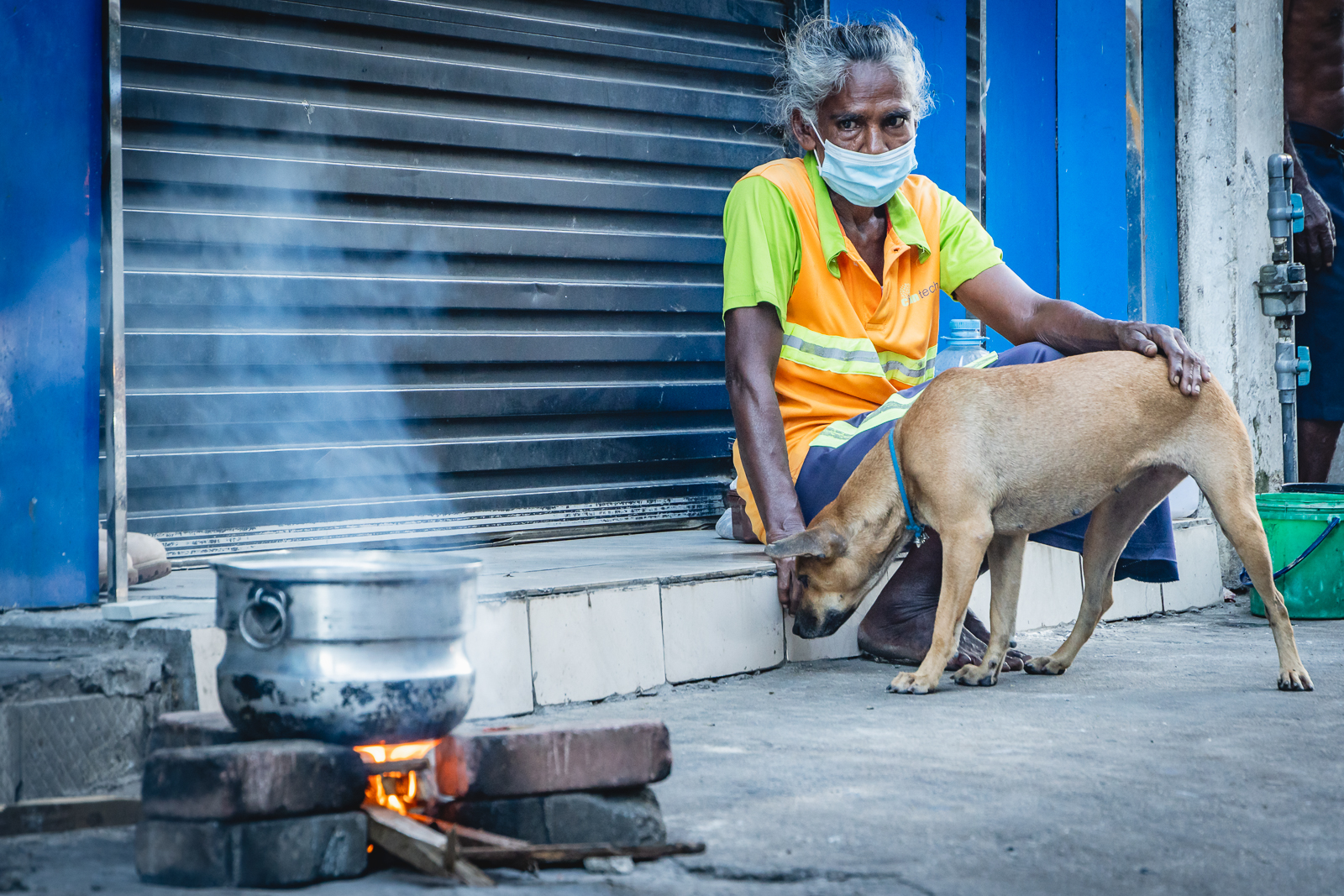
This t-shirt sums up the very definition of Pettah in an ideal world. But a world struck by a pandemic is far from ideal.
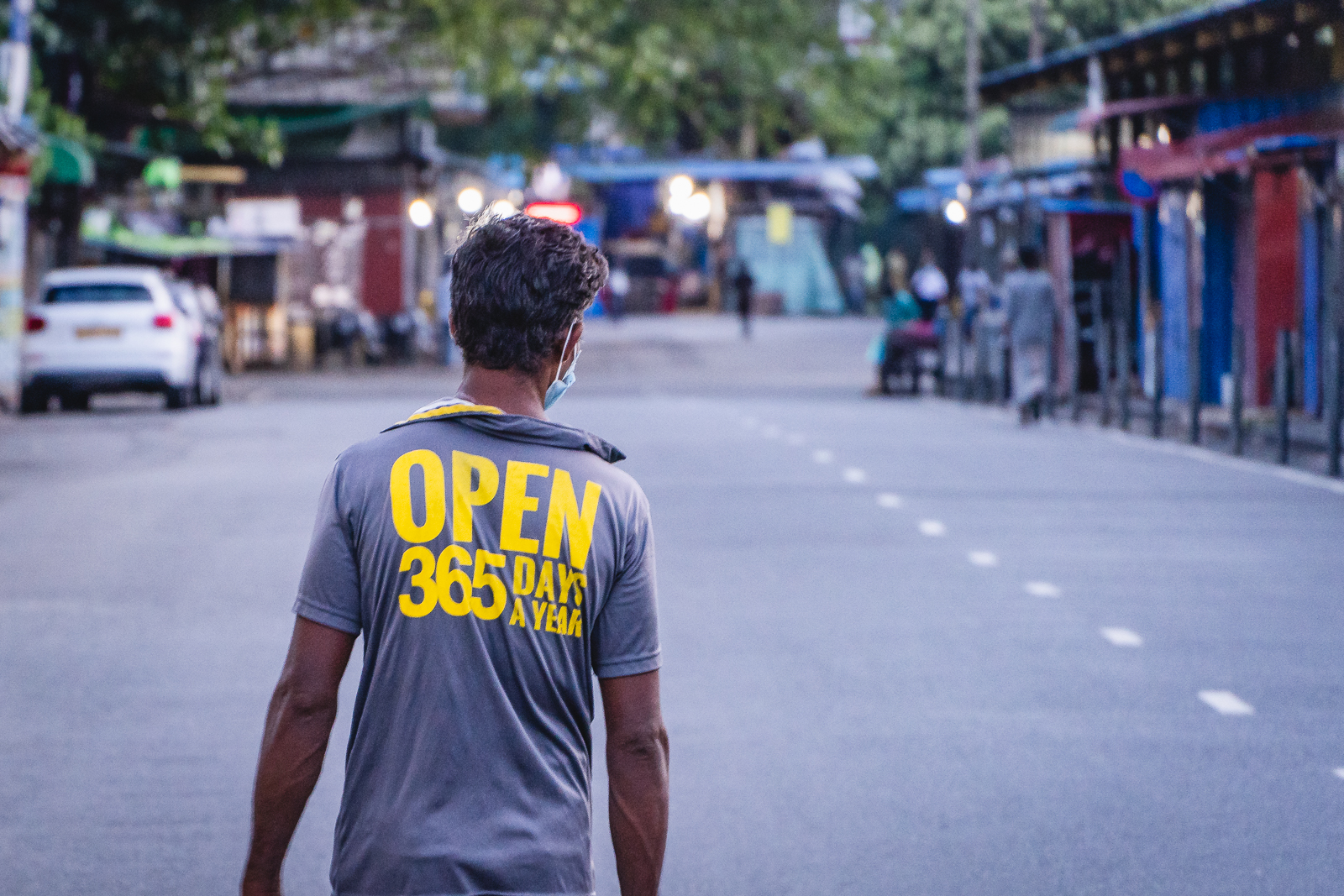
Despite the lockdown, you can catch a glimpse of a vehicle or two travelling in between the byroads of Pettah.
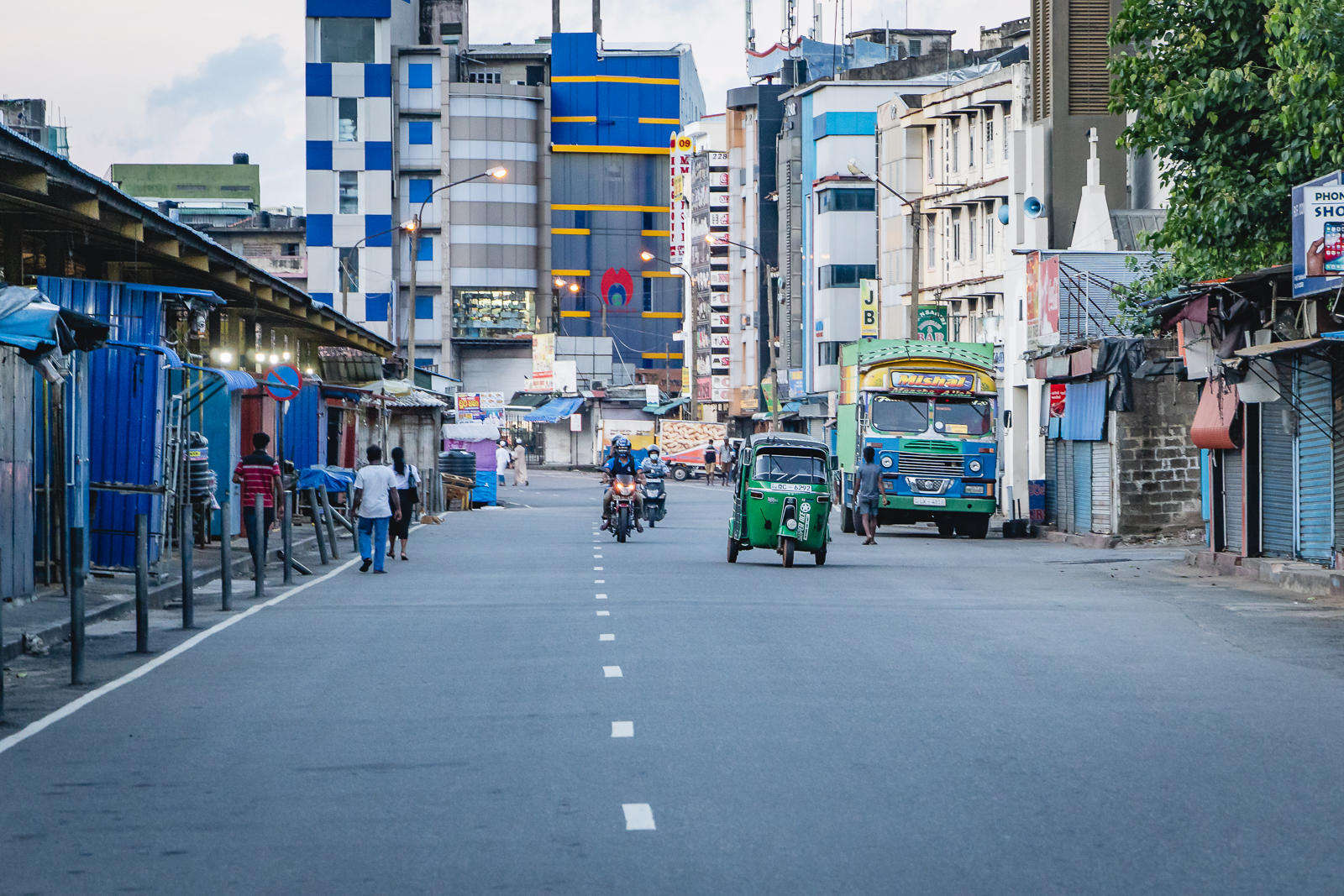
It’s not only the labourers who are affected by the lockdown. Small shop owners and businesses were also affected. Many of the labourers have been asked not to report to work by the business owners due to the prevailing situation, or at least until the government calls off the isolation and Pettah reopens for business.
Nassar (60) is one such nattami, who is currently out of work. He has been a nattami for most of his life but is now isolated in his small home in Modara for almost one-and-a-half months. “I live in the Randiya Uyana flat in Modara. It’s a very small flat and my wife and I have nine other people living here; my two children, their spouses, our grandchildren and a brother-in-law of my son, who is also a nattami,” he said, speaking to Roar Media from the small flat his family is isolated in.
Many of the low-income housing projects, like Randiya Uyana, have been demarcated by the authorities as COVID-19 hotspots and resulted in their isolation from the rest of society. Their residents, like Nassar and his family, are struggling to get by.
“We are daily wage earners, mahaththaya (sir). When we are in lockdown, we don’t get paid. We are surviving on the food and groceries that are donated by others. My wife has run out of her medicine and we don’t have money to buy that even,” he said.
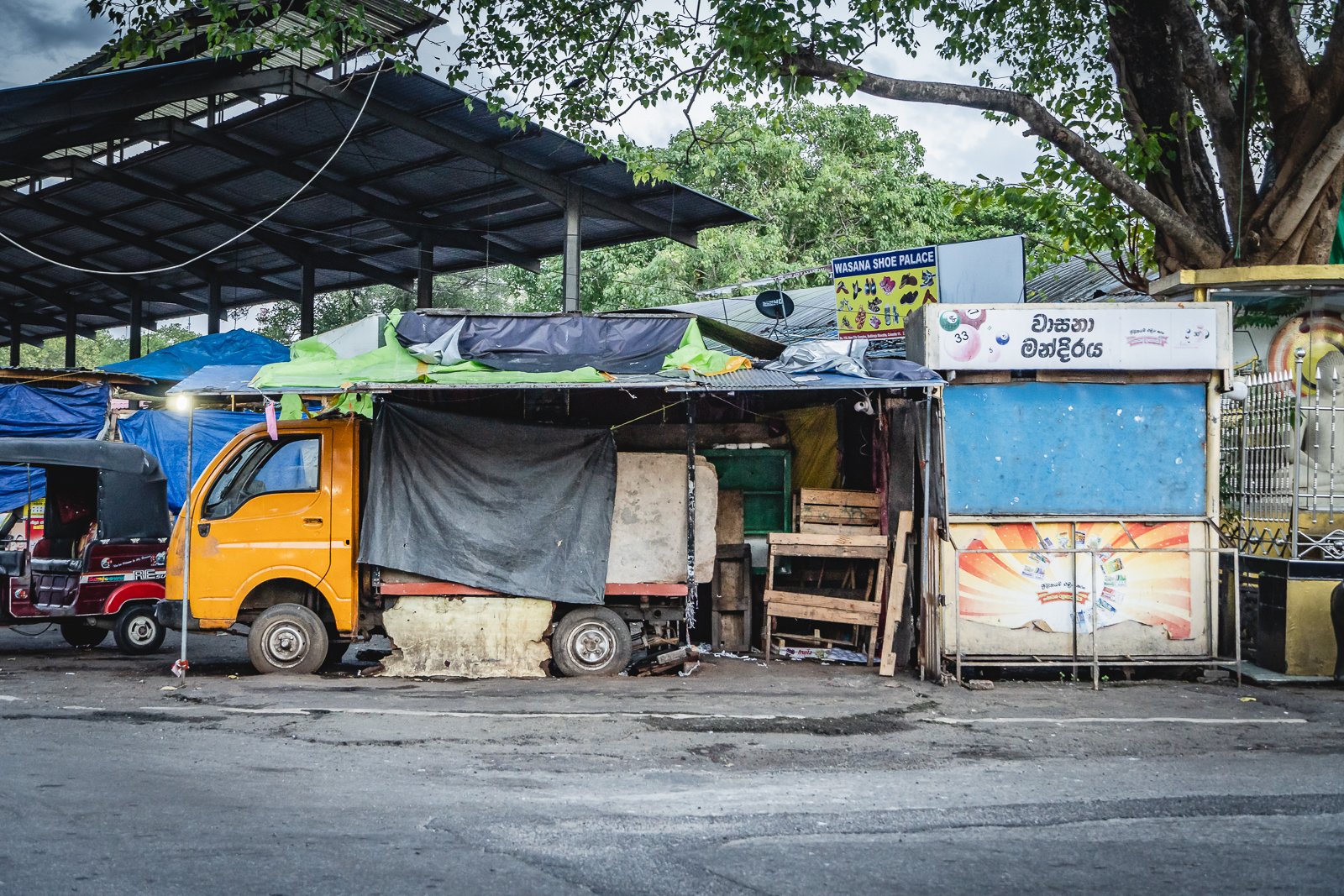
This is a particular location that is rarely empty: the main vegetable stand of Pettah, where a multitude of vegetable lorries, travelling from all parts of the country, unload their goods to be sold. Since the lockdown, it has been closed; the bus station nearby has similarly been deserted.
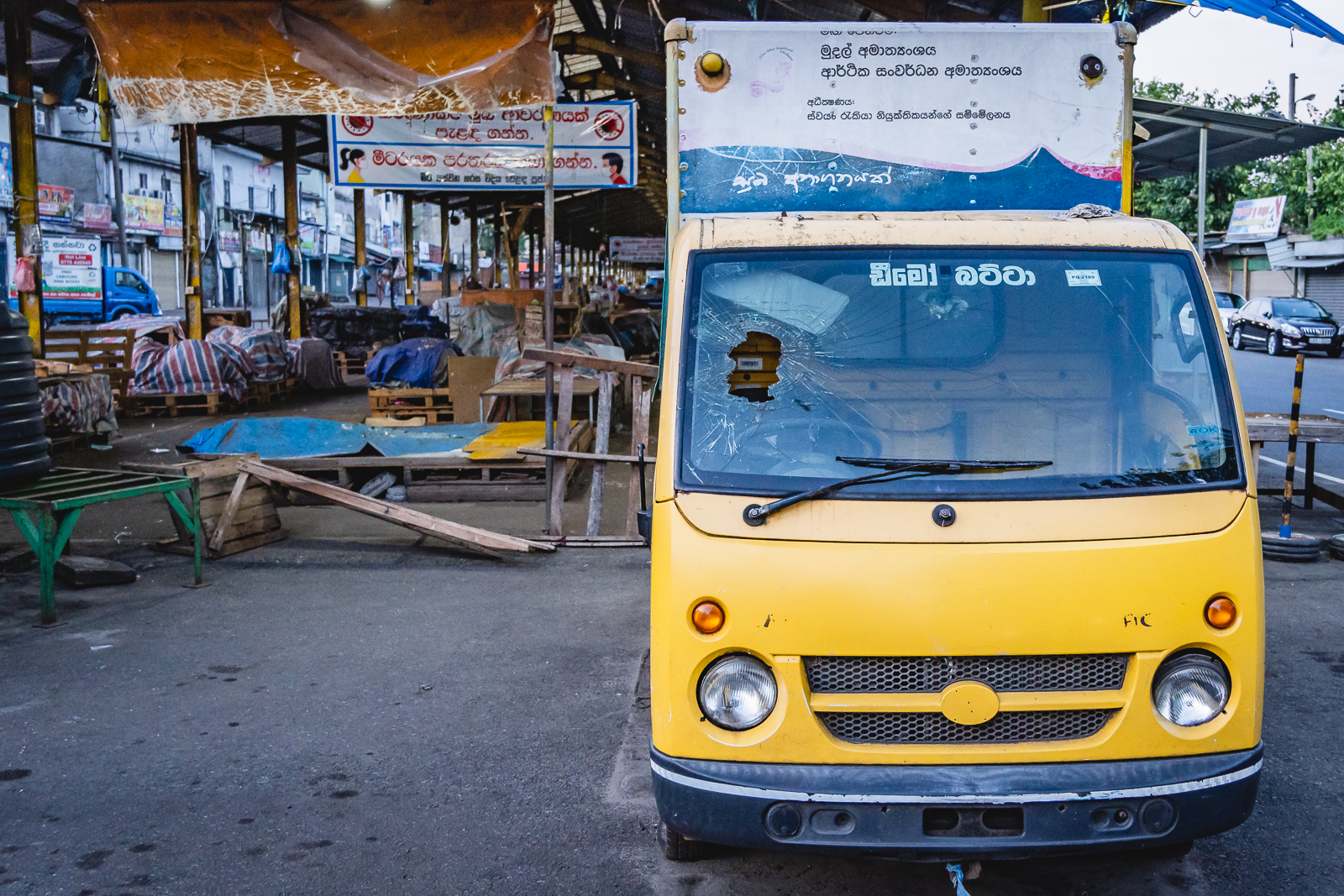
Pettah is a ghost town. And for many that roam its winding streets, its limbo-like situation requires quick change; for Selvam it is a need to return to business. For Nassar and Sunil, it is essential that Pettah reopens so that they can earn some money. These are but a few stories from those who we met. There are yet countless others, their many stories untold, unheard.
